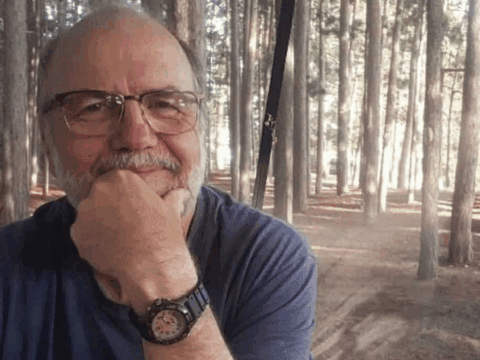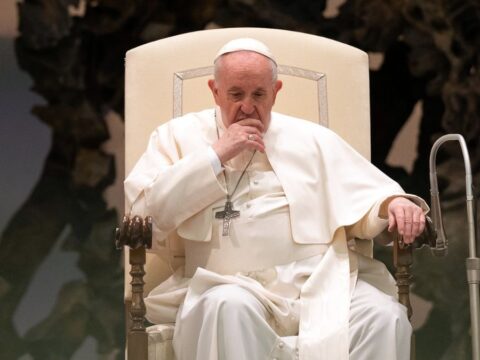I was 11 when I started chatting online with a youth pastor. I had met Matt, a 20-something married man, at a Baptist youth conference months beforehand. He was the keynote speaker at the conference, and his sermons that weekend made an impact on me. At the end of the conference, I wrote Matt a letter, hoping to encourage him in his ministry, and one of my youth leaders delivered it.
Matt slipped me a note before the end of the conference, which included his email, and our “mentorship” began.
You may unsubscribe from any of our newsletters at any time.
The problem with 11-year-old and an adult exchanging emails and instant chat messages is the lack of accountability and perceived familiarity. This was 2001, long before anyone thought about the safety of online communication. Our emails were innocent enough, but the more familiar and comfortable Matt grew, the more probing his questions became.
When the conversation veered into inappropriate territory, I felt a prickling inside my spirit. Matt had once urged me in an email to “listen to the stirrings inside of my heart” and to remember that those stirrings would “lead me in the right direction.” If I had identified that uncomfortable prickling as those same “stirrings” he spoke about, maybe I would have understood the unsafe place I was in.
Like most children who are being sexually groomed by an adult, my trust in him blossomed, and I chose not to tell anyone about our conversations. Eventually they became less frequent, but Matt’s words about listening to my heart’s stirrings stayed tacked to a corkboard in my bedroom for the rest of my childhood.
He had made his impact.
When I was 18, I sent Matt an email. We hadn’t spoken in years but I still felt fondly about our mentorship years ago. The Internet is a funny thing, and it was easy to find out that he was now a senior pastor in a different province. He sounded warm and excited in his response to my initial message, and we started emailing again.
Matt quickly approached dangerous territory in our conversations. I was a young woman, and he didn’t let that escape his notice. He sent me messages every single time I posted a photo of myself on Facebook, complimenting my looks at first and then making forward sexual comments. I felt uncomfortable, but brushed it off, choosing to take his attention as a compliment. I briefly allowed these inappropriate interactions to continue, pushing away the shame.
Matt was still a childhood hero of mine. His words were still printed in my 11-year-old’s writing on my corkboard. And now, at 18, he was finally getting what he wanted. For a short time, I would say we had an online affair, one that would cause me deep shame for many years.
After about a month, I couldn’t handle the discomfort I was feeling and stopped talking to him. I confided in a Christian friend at university, too ashamed and filled with regret to hold my secret in any longer.
My friend urged me to talk to the elders at Matt’s church, where he was the senior pastor. I was too afraid, so he offered to send an anonymous email to the elders himself, alerting them to Matt’s behaviour.
After weeks of email exchanges between my friend and the elders, it became clear that Matt would be let off the hook. Meetings were held, or so we were told, but he was never asked to step down from ministry or even take a week off. I obsessed over listening to sermons, trying to hear a hint of regret in his voice while he continued to preach every Sunday, but I never found what I was looking for.
“The Bible says that these men should be held to a higher standard of accountability, but in reality, their role seems to offer them immunity.”
It’s taken me years to release my shame over these past interactions, but that was a step in the direction towards healing. As long as I continued to believe I was a consenting adult, I would remain imprisoned in a lie that Matt would happily have me believe.
When I was 11, a married man in his 20s broached the topic of masturbation with me. Then he pursued me when I was still a teen, and he was still married and a pastor. Does he carry all of the blame for what happened? In my opinion, yes, he does.
I’ll turn 30 next year, and I’ve come a long way in healing and understanding what consent means. The fact that I can publicly discuss, without fear, what happened to me, is a testament to the hard work of good therapy and the reawakening of my faith. Still, we have so much further to go.
We continue to see men in church leadership cross boundaries with women, abusing their power under the guise of spirituality and care. The Bible says that these men should be held to a higher standard of accountability, but in reality, their role seems to offer them immunity. The Bible says that the vulnerable should be especially protected, but it seems like the vulnerable are discarded and disregarded.
My experience with a pastor who abused his power has not dampened my faith as a Christian, but it’s caused me to pause and remember that all humans are fallible. No person deserves my trust simply because of a title they hold.













